#Sonderstudy
Explore tagged Tumblr posts
Text
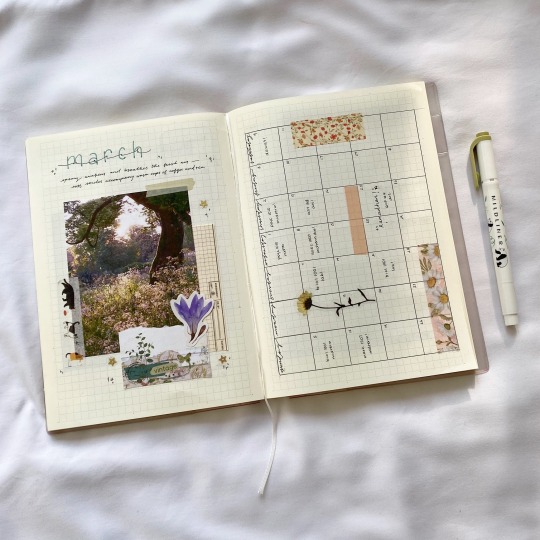
— 020323 🌻
dont ask me why but march spreads just have to be green!
my instagram: justanotherrjournal
#bujo#bujoblr#bulletjournalinspo#bullet journal#studyblr#muji#study#muji stationary#bujoweeklyspread#bujocommunity#peepstudies#bujoinspo#bulletjournalcommunity#bujo aesthetic#bujoinspiration#sonderstudy#journal#bulletjournal#medblr#bujo2023#bujomonthlyspread
312 notes
·
View notes
Text

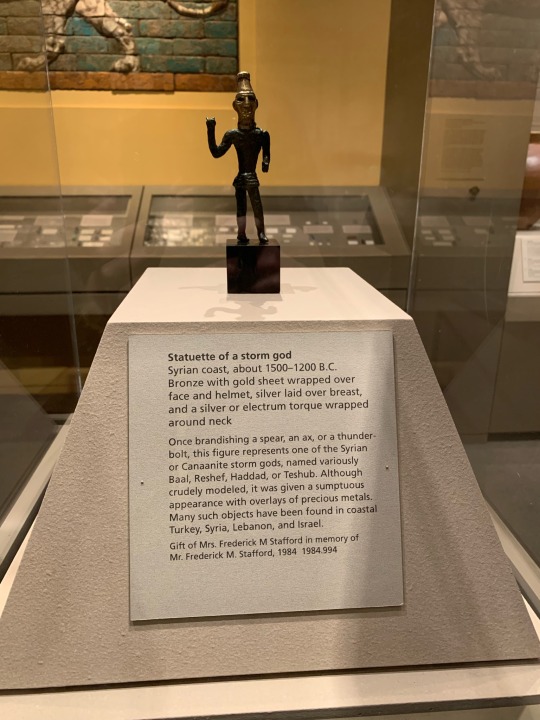
enjoyed writing this essay on hittite/hurrian mythology and its connections to ancient greek mythic tradition
#mine#lesliestudies#studyharp#heyfox#gloomstudy#studypool#sonderstudy#lookrugile#emmastudies#lawyerd#studyblr#studyspo#literature#greek mythology#ancient greece#classical studies#ancient history#essay
2 notes
·
View notes
Text
Unsung Valkyries/An Ode to Women
To the paati who sold you fish for a few rupees less because you visit her place often, To the teacher who gave you the extra two marks to pass the exam so you don’t write a retest, to the random girl online who actively listened and helped get over a rough day in your life, to the relative who always cares about you and your family without being jealous like the others, to the girlfriend who accepted you for who you are, to the exes who respected your decisions, to the mutual friend who bridged every fight, to the random girl in the concert who had similar energies and vibes, to the helper at my home who takes care of every whim and fancy of time. To all these unsung valkyries in my life, I wish you a very happy women's day.
#writing#womenempowerment#womensday#prose#self introspection#sonderstudy#writers on tumblr#unsung#valkyries#an ode to women#ode#tribute
2 notes
·
View notes
Photo
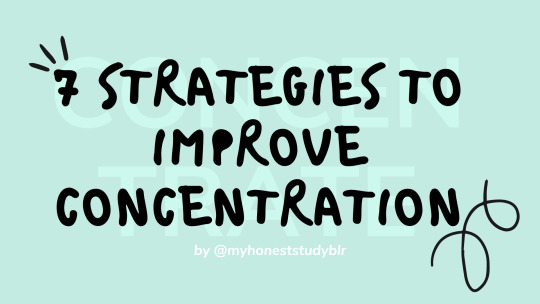
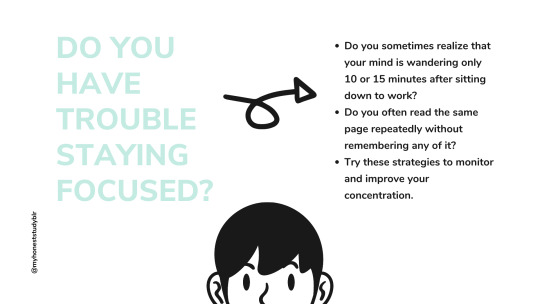
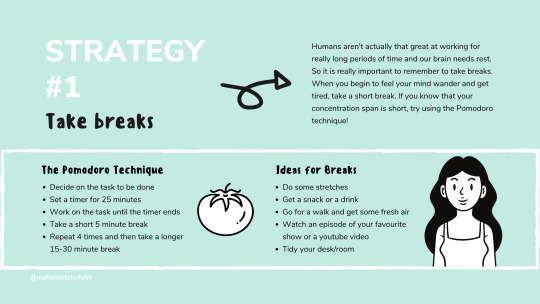
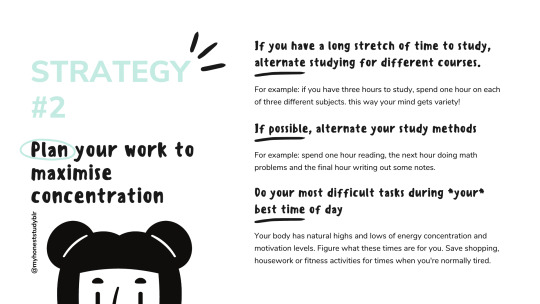
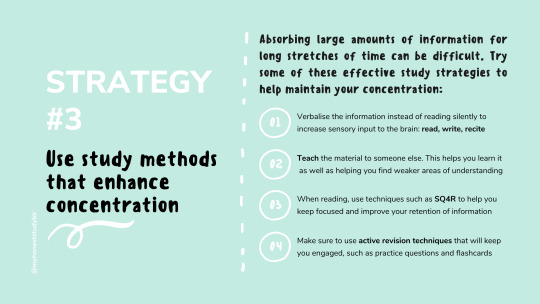
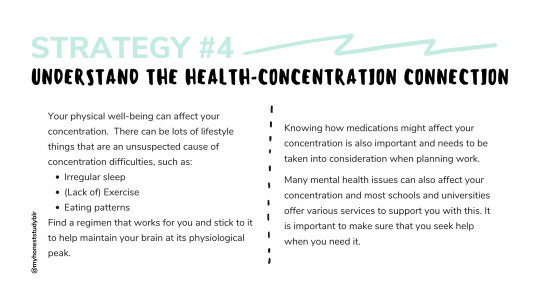
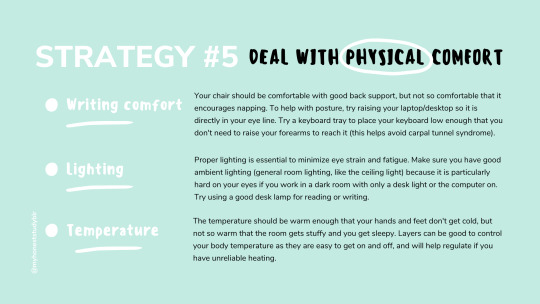
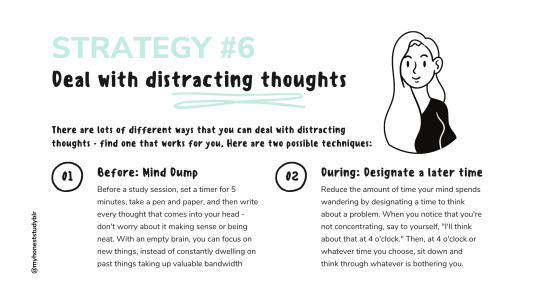
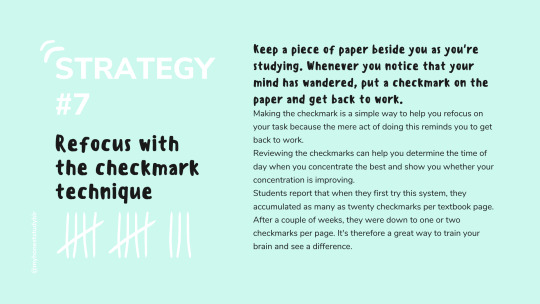
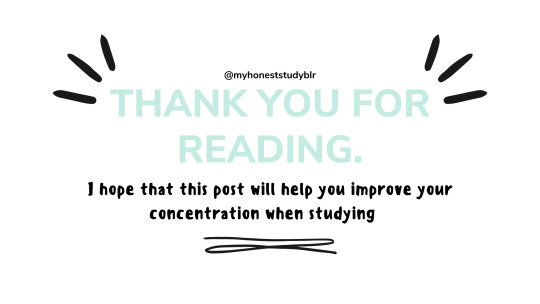
my masterpost | my studygram | ask me anything
[click images for high quality]
[transcript under the cut]
Other advice posts that may be of interest:
How To Study When You Really Don’t Want To
Active Revision Techniques
How To Do Uni Readings
How to Revise BIG Subjects
Common Study Mistakes
Do you have trouble staying focused?
Do you sometimes realise that your mind is wandering only 10 or 15 minutes after sitting down to work?
Do you often read the same page repeatedly without remembering any of it?
Try these strategies to monitor and improve your concentration.
Strategy #1: Take breaks
Humans aren't actually that great at working for really long periods of time and our brain needs rest. So it is really important to remember to take breaks.
When you begin to feel your mind wander and get tired, take a short break. If you know that your concentration span is short, try using the Pomodoro technique!
The Pomodoro Technique:
Decide on the task to be done
Set a timer for 25 minutes
Work on the task until the timer ends
Take a short 5 minute break
Repeat 4 times and then take a longer 15-30 minute break
Ideas for Breaks:
Do some stretches
Get a snack or a drink
Go for a walk and get some fresh air
Watch an episode of your favourite show or a youtube video
Tidy your desk/room
Strategy #2: Plan your work to maximise concentration
If you have a long stretch of time to study, alternate studying for different courses. For example: if you have three hours to study, spend one hour on each of three different subjects. this way your mind gets variety!
If possible, alternate your study methods. For example: spend one hour reading, the next hour doing math problems and the final hour writing out some notes.
Do your most difficult tasks during *your* best time of day. Your body has natural highs and lows of energy concentration and motivation levels. Figure what these times are for you. Save shopping, housework or fitness activities for times when you're normally tired.
Strategy #3: Use study methods that enhance concentration
Absorbing large amounts of information for long stretches of time can be difficult. Try some of these effective study strategies to help maintain your concentration:
Verbalise the information instead of reading silently to increase sensory input to the brain: read, write, recite
Teach the material to someone else. This helps you learn it as well as helping you find weaker areas of understanding
When reading, use techniques such as SQ4R to help you keep focused and improve your retention of information
Make sure to use active revision techniques that will keep you engaged, such as practice questions and flashcards
Strategy #4: Understand the Health-Concentration Connection
Your physical well-being can affect your concentration. There can be lots of lifestyle things that are an unsuspected cause of concentration difficulties, such as:
Irregular sleep
(Lack of) Exercise
Eating patterns
Find a regimen that works for you and stick to it to help maintain your brain at its physiological peak.
Knowing how medications might affect your concentration is also important and needs to be taken into consideration when planning work.
Many mental health issues can also affect your concentration and most schools and universities offer various services to support you with this. It is important to make sure that you seek help when you need it.
Strategy #5: Deal with Physical Comfort
Writing Comfort: Your chair should be comfortable with good back support, but not so comfortable that it encourages napping. To help with posture, try raising your laptop/desktop so it is directly in your eye line. Try a keyboard tray to place your keyboard low enough that you don't need to raise your forearms to reach it (this helps avoid carpal tunnel syndrome).
Lighting: Proper lighting is essential to minimise eye strain and fatigue. Make sure you have good ambient lighting (general room lighting, like the ceiling light) because it is particularly hard on your eyes if you work in a dark room with only a desk light or the computer on. Try using a good desk lamp for reading or writing.
Temperature: The temperature should be warm enough that your hands and feet don't get cold, but not so warm that the room gets stuffy and you get sleepy. Layers can be good to control your body temperature as they are easy to get on and off, and will help regulate if you have unreliable heating.
Strategy #6: Deal with distracting thoughts
There are lots of different ways that you can deal with distracting thoughts - find one that works for you. Here are two possible techniques:
Before: Mind Dump
Before a study session, set a timer for 5 minutes, take a pen and paper, and then write every thought that comes into your head - don't worry about it making sense or being neat. With an empty brain, you can focus on new things, instead of constantly dwelling on past things taking up valuable bandwidth
During: Designate a later time
Reduce the amount of time your mind spends wandering by designating a time to think about a problem. When you notice that you're not concentrating, say to yourself, "I'll think about that at 4 o'clock." Then, at 4 o'clock or whatever time you choose, sit down and think through whatever is bothering you.
Strategy #7: Refocus with the checkmark technique
Keep a piece of paper beside you as you're studying. Whenever you notice that your mind has wandered, put a checkmark on the paper and get back to work.
Making the checkmark is a simple way to help you refocus on your task because the mere act of doing this reminds you to get back to work.
Reviewing the checkmarks can help you determine the time of day when you concentrate the best and show you whether your concentration is improving.
Students report that when they first try this system, they accumulated as many as twenty checkmarks per textbook page. After a couple of weeks, they were down to one or two checkmarks per page. It's therefore a great way to train your brain and see a difference.
#7 strategies to improve concentration#myhoneststudyblr#studyblr#heypat#heycoral#bulletnotestudies#heycazz#heyharri#jeonchemstudy#stillstudies#studylustre#studyvan#stuhde#sonderstudy#serendistudy#problematicprocrastinator#medustudies#gloomstudy#boldlystudy#academiix#philologystudies#idiotacademia#my advice
10K notes
·
View notes
Text
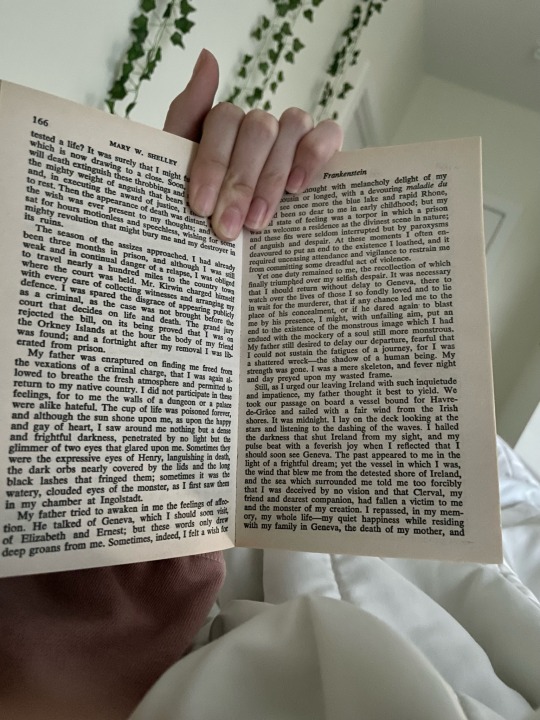

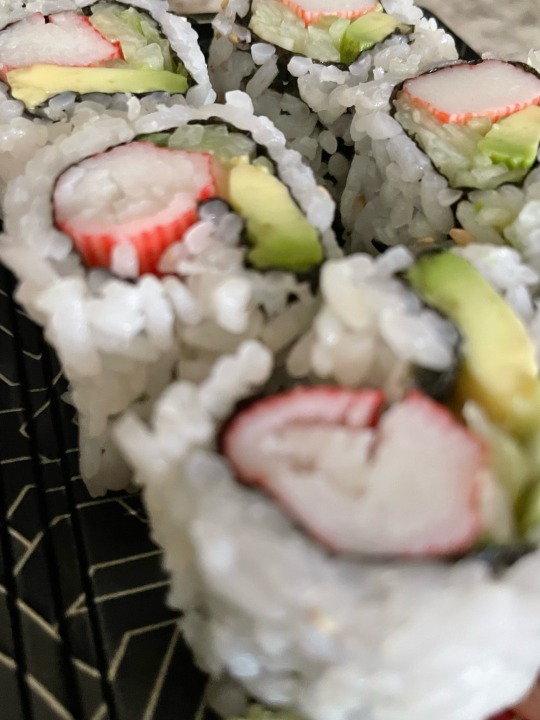
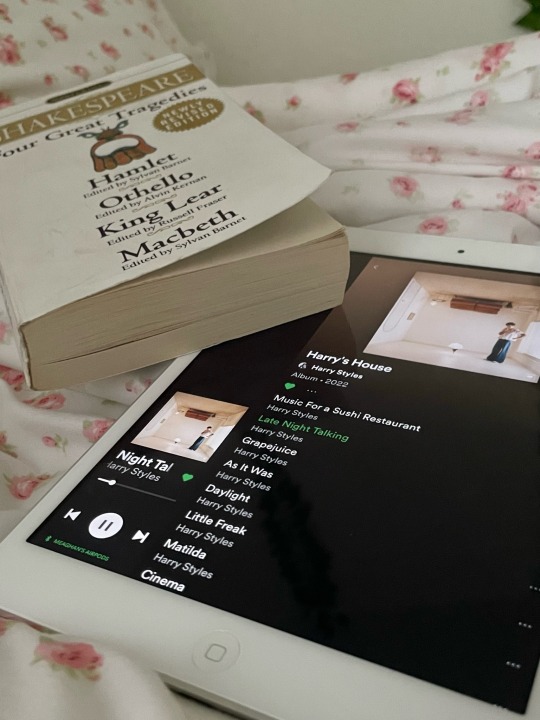
22/05/2022
reading, sushi runs, and harry’s house on repeat. hope you’re all having a lovely day. <3
it’s been some time since i’ve been very active on this platform. my break has me excited to be posting again!
#studyblr#studyspo#studyvan#lookrylie#elleandhermione#stuhde#stillstudies#athenastudying#sonderstudy#studylikeara#gloomstudy#illya studies#intellectys#smartspos#problematicprocrastinator#heykenzie#serendistudy#theologei#bookblr#selenicstudies#studiousliz#astudentslifebuoy#hiyatranquil#heyharri#saltwaterstudies
589 notes
·
View notes
Text
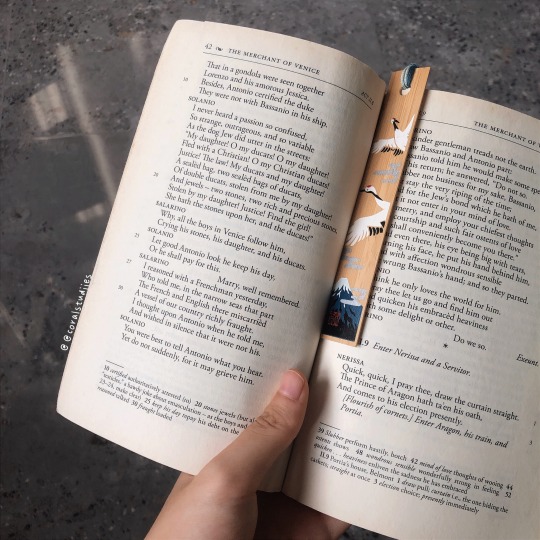

yeah im back after having nothing to post once exam season is over
#study#studyblr#study motivation#studyinspo#revision+notes#study inspiration#studyspo#study inspo#bookblr#heysaher#sonderstudy#hyperchemblr#selunelog#huitingreads#gloomstudy#heyrylie#heypat#elleandhermione#scholastc#headgirlstudy#myhoneststudyblr#mid-afternoon-studies#pltuo#idiotacademia#starrystvdy#coralstudiies#heyharri#serendistudy#theorganisedkat#studiousliz
592 notes
·
View notes
Text


i never thought i'd miss this messy, slightly-too-small desk space, but here i am — about to move to a new apartment and feeling nostalgic already.
#studyspo#studyblr#dark academia#study motivation#study aesthetic#productivity#onmydesk#100 days of productivity#study#studying#notebookist#studyvan#stillstudies#stationery#notes#sonderstudy#heypat#heyzainab#problematicprocrastinator#elleandhermione#jeonchemstudy#academiix#stuhde#eintsein#lookrylie
3K notes
·
View notes
Photo
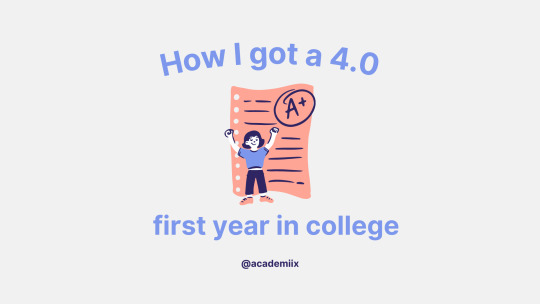
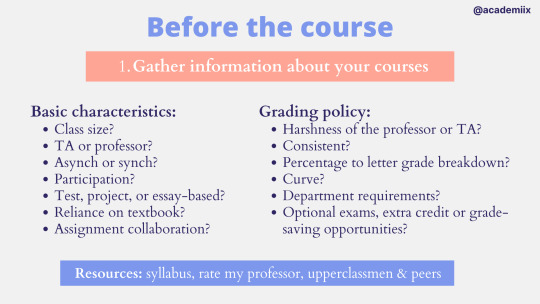

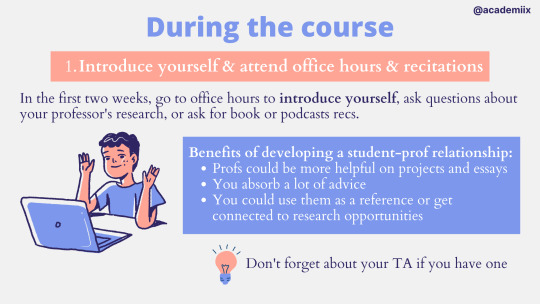
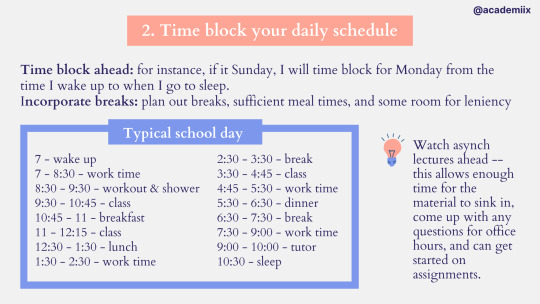
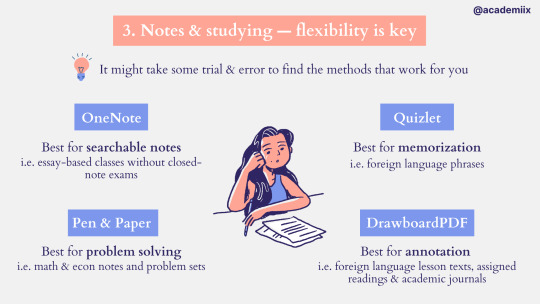
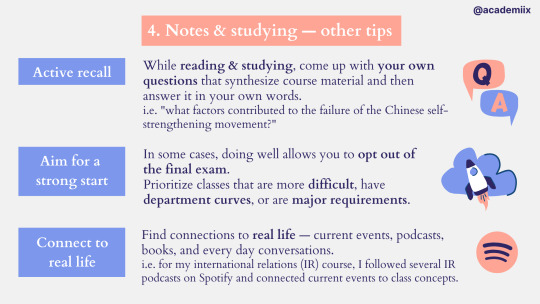
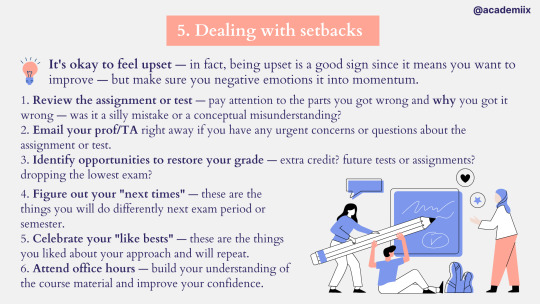
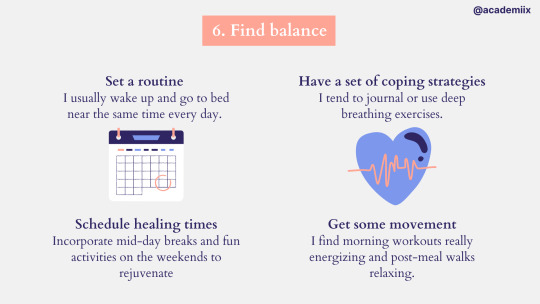
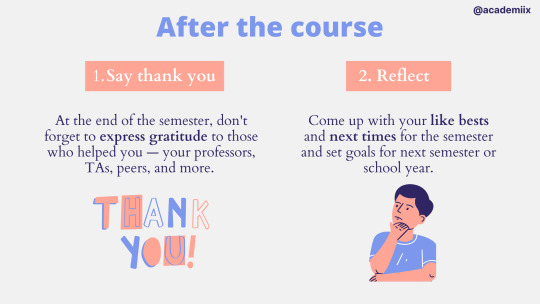
How I got a 4.0 first year in college | academiix
Watch the video version on Youtube.
View my other tips and masterposts.
#studyblr#studyspo#study inspiration#studying#productivity#study tips#motivation#eintsein#philologystudies#studyvan#noodledesk#studylustre#sonderstudy#jeonchemstudy#my masterpost#masterpost#mine#heypat#stillstudies
6K notes
·
View notes
Text
Improving my day at my fav place🤤☕📖🥪




#studyblr#problematicprocrastinator#aesthetic#photography#gloomstudy#jeonchemstudy#athenastudying#inspiration#studyspo#adelinestudies#coffeeblr#coffee date#coffee shop#huitingreads#tusermelissa#astudentslifebuoy#sonderstudy#sophie speaks#artists on tumblr#valencia#boldlystudy#heypat#heysage#sunnyday#medustudies#blueplaidlook#studyvan#heypanda#heypeachblossom#dark academia
325 notes
·
View notes
Text
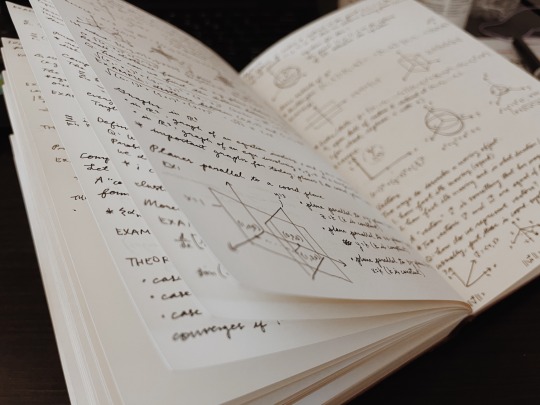
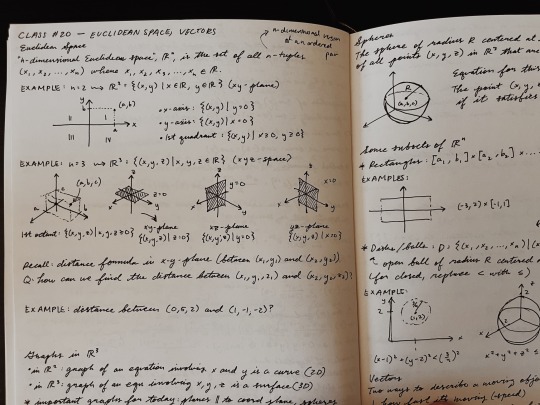
051221. god i wish i had even the slightest clue of what is ever going on at any moment but . math notes setup for today was nice
#we're starting multivar finally which . pain#studyblr#studyspo#mathblr#light academia#dark academia#university#productivity#sonderstudy#lookrylie#gloomstudy#stuhde#revisicn#philologystudies#jeonchemstudy#captainofstudies#studylikegeller#handwriting tag#spring 2021
4K notes
·
View notes
Photo
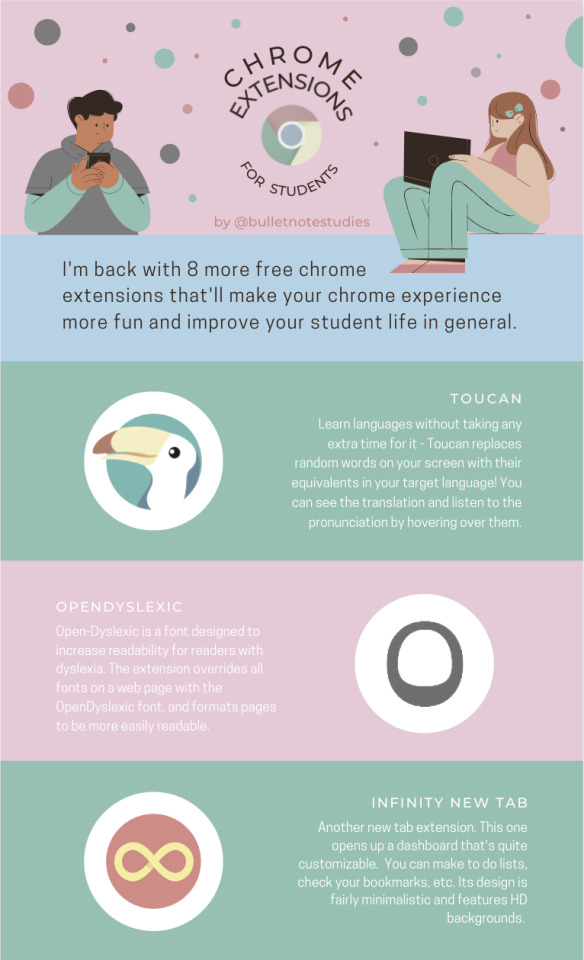
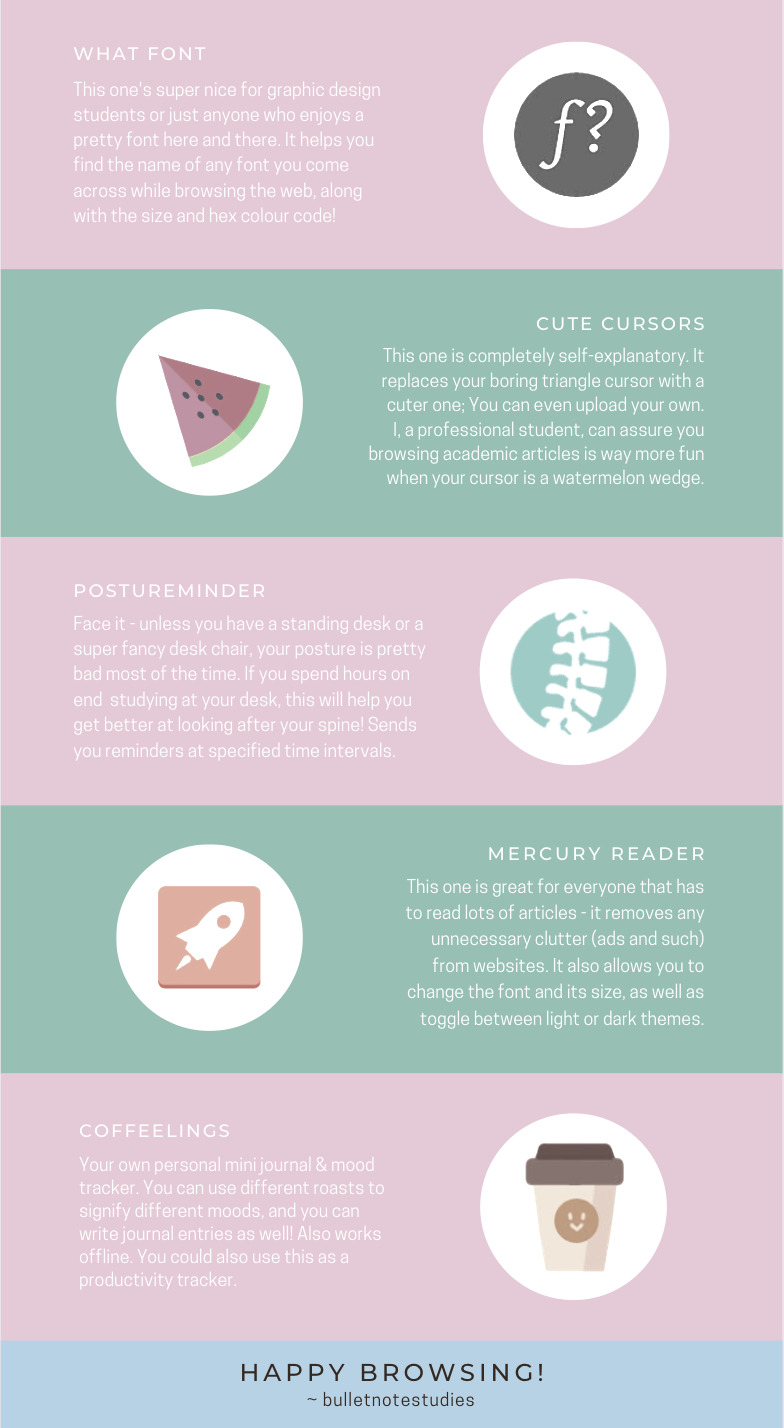
*click for better quality* (transcript under the cut)
My other masterposts: • extensions pt.1 • study sounds • dealing with failure • how to gain traction • how to study when you’re struggling
TOUCAN Learn languages without taking any extra time for it - Toucan replaces random words on your screen with their equivalents in your target language; You can see the translation and listen to the pronunciation by hovering over them. It also works in reverse - if you highlight any phrase in your language, it can give you the target language equivalent!
OPENDYSLEXIC Open-Dyslexic is a font specifically designed to increase readability for readers with dyslexia. The extension overrides all fonts on a web page with the OpenDyslexic font, and formats pages to be more easily readable.
INFINITY NEW TAB Another new tab extension. This one opens up a dashboard that's quite customizable. You can make to do lists, check your bookmarks, etc. Its design is fairly minimalistic and features lots of HD backgrounds.
WHAT FONT This one's super nice for graphic design students or just anyone who enjoys a pretty font here and there. It helps you find the name of any font you come across while browsing the web, along with the size and hex colour code!
CUTE CURSORS This one is completely self-explanatory. It replaces your boring triangle cursor with a cuter one; You can even upload your own little image. I, a professional student, can assure you browsing academic articles is way more fun when your cursor is a watermelon wedge.
POSTUREMINDER Face it - unless you have a standing desk or a super fancy desk chair, your posture is pretty bad most of the time. If you spend hours on end studying at your desk, this will help you get better at looking after your spine! This extension sends you reminders at specified time intervals.
MERCURY READER This one is great for everyone that has to read lots of articles - it removes any unnecessary clutter (ads and such) from websites. It also allows you to change the font and its size, as well as toggle between light or dark themes.
COFFEELINGS Your own personal mini journal & mood tracker. You can use different roasts to signify different moods, and you can write journal entries as well! Also works offline. You could also use this as a productivity tracker.
#sabrinas masterposts#sabrinas posts#studyblr#study masterpost#masterpost#studying#sonderstudy#stillstudies#gloomstudy#studyvan#myhoneststudyblr#heycoral#academiix#philologystudies#studylustre#stuhde#athenastudying#medustudies#lookrylie#heykenzie
11K notes
·
View notes
Text

— 260223 💫🕊
one of my favourite spreads from february
instagram: justanotherrjournal
#bujo#bujoblr#bulletjournalinspo#bullet journal#studyblr#muji#study#muji stationary#bujo2019#bujoweeklyspread#bujocommunity#peepstudies#bujoinspo#bulletjournalcommunity#bujo aesthetic#bujoinspiration#sonderstudy#journal#bulletjournal#medblr
290 notes
·
View notes
Text
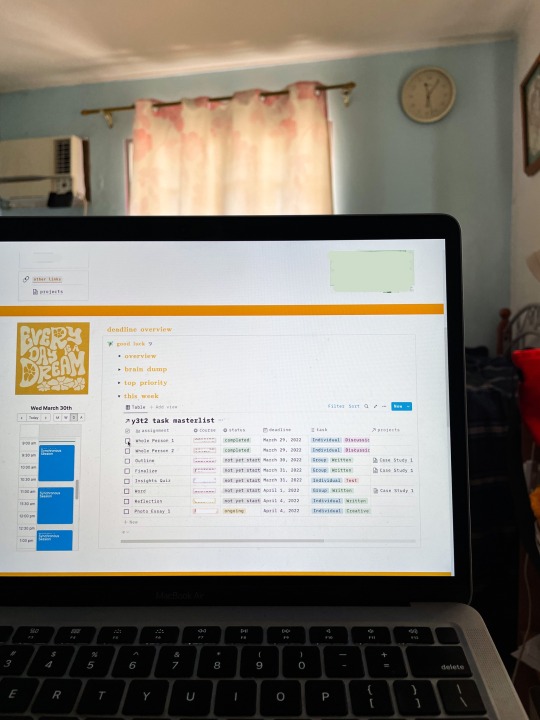
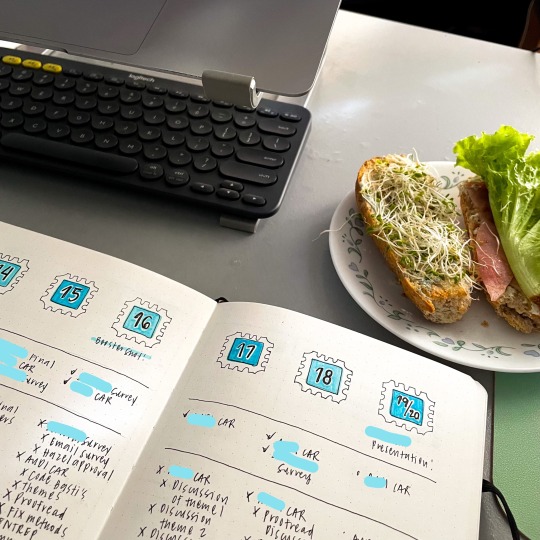
— april 11, 2021
My internship application was accepted!! Ya girl is an intern now 🥺 If any of you have some advice on how to juggle academics, orgwork, and an internship, please do let me know! I’ve been looking for a Notion template that’ll work best for this, but I’ve had no luck. Anyways, I hope you guys are having a great day!
#mine#studyspo#notes#bujo#eintsein#intellectys#tbhstudying#heypat#studyblr#heyaestudier#heycoral#emmastudies#pltuo#bulletnotestudies#myhoneststudyblr#athenastudying#sonderstudy
523 notes
·
View notes
Photo
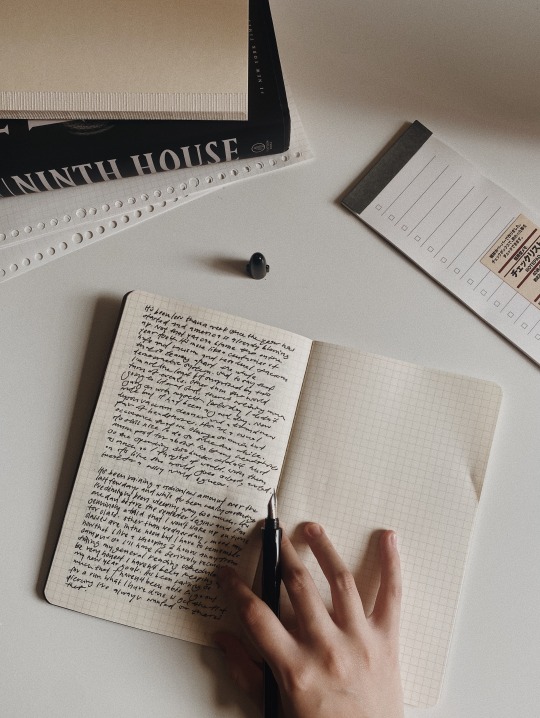
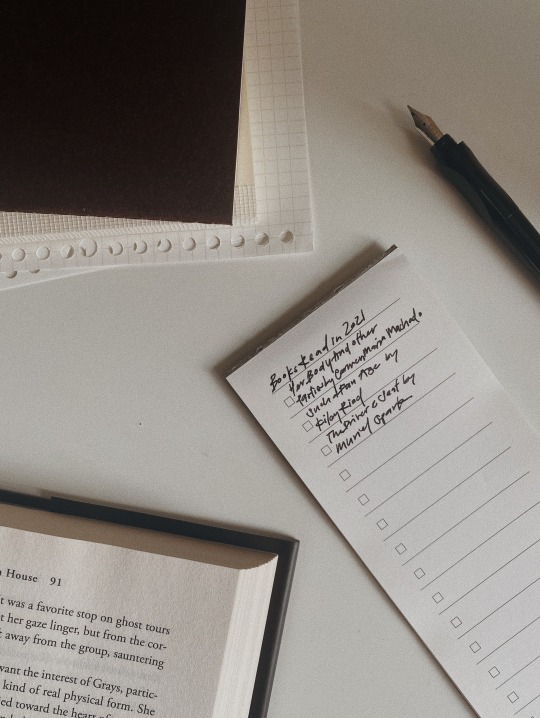
a bunch of scribbles
#studyblr#student#studying#literature#bujo#bullet journal#english literature#university#academia#dark academia#bookblr#books#readings#sonderstudy#mine
10K notes
·
View notes
Photo
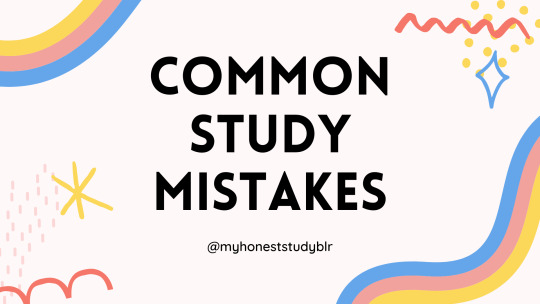
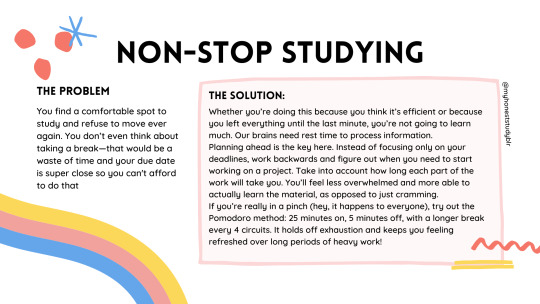
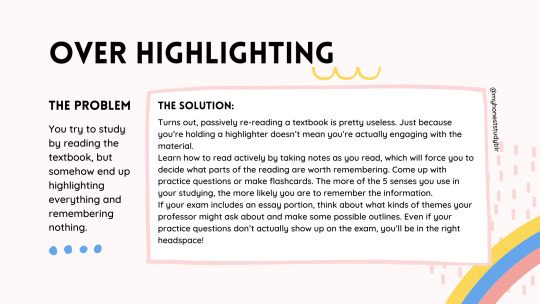
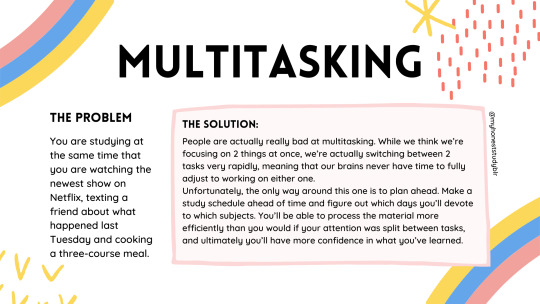
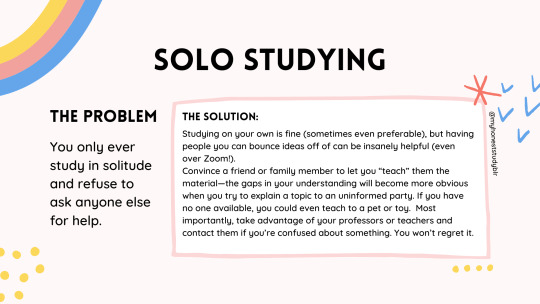
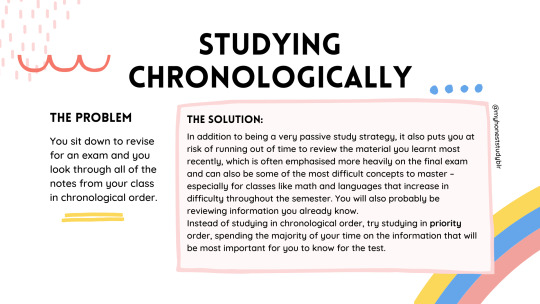
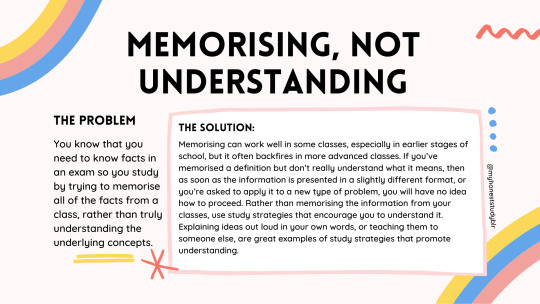
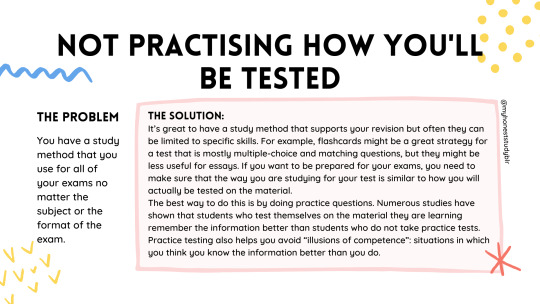
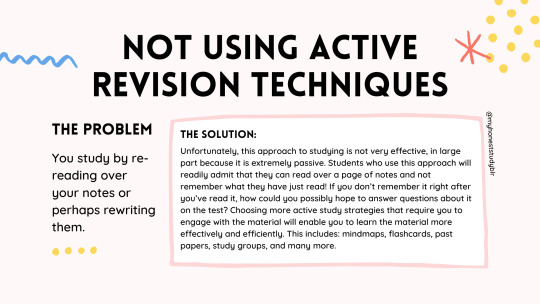
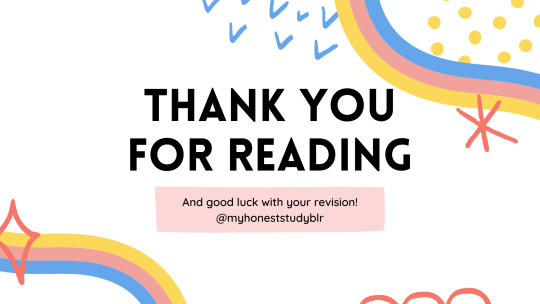
my masterpost | my studygram | ask me anything
[click images for high quality]
[transcript under the cut]
Other advice posts that may be of interest:
How To Study When You Really Don’t Want To
Active Revision Techniques
How To Do Uni Readings
How to Revise BIG Subjects
Non-Stop Studying
The Problem
You find a comfortable spot to study and refuse to move ever again. You don’t even think about taking a break—that would be a waste of time and your due date is super close so you can't afford to do that
The Solution
Whether you’re doing this because you think it’s efficient or because you left everything until the last minute, you’re not going to learn much. Our brains need rest time to process information. Planning ahead is the key here. Instead of focusing only on your deadlines, work backwards and figure out when you need to start working on a project. Take into account how long each part of the work will take you. You’ll feel less overwhelmed and more able to actually learn the material, as opposed to just cramming. If you’re really in a pinch (hey, it happens to everyone), try out the pomodoro method: 25 minutes on, 5 minutes off, with a longer break every 4 circuits. It holds off exhaustion and keeps you feeling refreshed over long periods of heavy work!
Over Highlighting
The Problem
You try to study by reading the textbook, but somehow end up highlighting everything and remembering nothing.
The Solution
Turns out, passively re-reading a textbook is pretty useless. Just because you’re holding a highlighter doesn’t mean you’re actually engaging with the material. Learn how to read actively by taking notes as you read, which will force you to decide what parts of the reading are worth remembering. Come up with practice questions or make flashcards. The more of the 5 senses you use in your studying, the more likely you are to remember the information. If your exam includes an essay portion, think about what kinds of themes your professor might ask about and make some possible outlines. Even if your practice questions don’t actually show up on the exam, you’ll be in the right headspace!
Multitasking
The Problem
You are studying at the same time that you are watching the newest show on Netflix, texting a friend about what happened last Tuesday and cooking a three-course meal.
The Solution
People are actually really bad at multitasking. While we think we’re focusing on 2 things at once, we’re actually switching between 2 tasks very rapidly, meaning that our brains never have time to fully adjust to working on either one. Unfortunately, the only way around this one is to plan ahead (weird how that keeps cropping up). Make a study schedule ahead of time and figure out which days you’ll devote to which subjects. You’ll be able to process the material more efficiently than you would if your attention was split between tasks, and ultimately you’ll have more confidence in what you’ve learned.
Solo Studying
The Problem
You only ever study in solitude and refuse to ask anyone else for help.
The Solution
Studying on your own is fine (sometimes even preferable), but having people you can bounce ideas off of can be insanely helpful (even over Zoom!). Convince a friend or family member to let you “teach” them the material—the gaps in your understanding will become more obvious when you try to explain a topic to an uninformed party. If you have no one available, you could even teach to a pet or toy. Most importantly, take advantage of your professors or teachers and contact them if you’re confused about something. You won’t regret it.
Studying Chronologically
The Problem
You sit down to revise for an exam and you look through all of the notes from your class in chronological order.
The Solution
In addition to being a very passive study strategy, it also puts you at risk of running out of time to review the material you learnt most recently, which is often emphasised more heavily on the final exam and can also be some of the most difficult concepts to master – especially for classes like math and languages that increase in difficulty throughout the semester. You will also probably be reviewing information you already know. Instead of studying in chronological order, try studying in priority order, spending the majority of your time on the information that will be most important for you to know for the test.
Memorising, Rather Than Understanding
The Problem
You know that you need to know facts in an exam so you study by trying to memorise all of the facts from a class, rather than truly understanding the underlying concepts.
The Solution
Memorising can work well in some classes, especially in earlier stages of school, but it often backfires in more advanced classes. If you’ve memorised a definition but don’t really understand what it means, then as soon as the information is presented in a slightly different format, or you’re asked to apply it to a new type of problem, you will have no idea how to proceed. Rather than memorising the information from your classes, use study strategies that encourage you to understand it. Explaining ideas out loud in your own words, or teaching them to someone else, are great examples of study strategies that promote understanding.
Not Practicing How You’ll Be Tested
The Problem
You have a study method that you use for all of your exams no matter the subject or the format of the exam.
The Solution
It’s great to have a study method that supports your revision but often they can be limited to specific skills. For example, flashcards might be a great strategy for a test that is mostly multiple-choice and matching questions, but they might be less useful for essays. If you want to be prepared for your exams, you need to make sure that the way you are studying for your test is similar to how you will actually be tested on the material. The best way to do this is by doing practice questions. Numerous studies have shown that students who test themselves on the material they are learning remember the information better than students who do not take practice tests. Practice testing also helps you avoid “illusions of competence”: situations in which you think you know the information better than you do.
Not Using Active Revision Techniques
The Problem
You study by re-reading over your notes or perhaps rewriting them.
The Solution
Unfortunately, this approach to studying is not very effective, in large part because it is extremely passive. Students who use this approach will readily admit that they can read over a page of notes and not remember what they have just read! If you don’t remember it right after you’ve read it, how could you possibly hope to answer questions about it on the test? Choosing more active study strategies that require you to engage with the material will enable you to learn the material more effectively and efficiently. This includes: mindmaps, flashcards, past papers, study groups, and many more.
#common study mistakes#myhoneststudyblr#studyblr#heypat#heycoral#bulletnotestudies#heycazz#heyharri#jeonchemstudy#studyvan#stuhde#serendistudy#sonderstudy#problematicprocrastinator#stillstudies#medustudies#gloomstudy#boldlystudy#philologystudies#academiix#idiotacademia#my advice
10K notes
·
View notes
Text


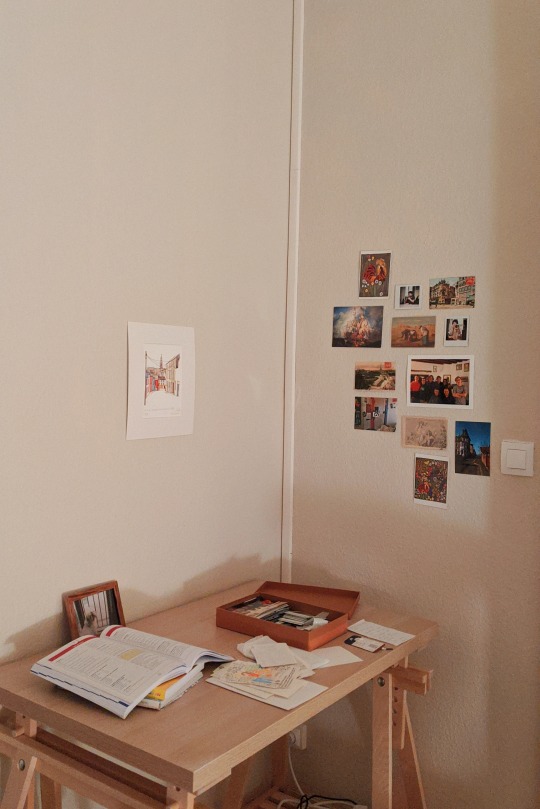

27/100 days of productivity
Dressing up to decorate your space is the very first step of giving your new home 🌟 immaculate vibes 🌟 trust me
#featuring a painting I am rather fond of! I hope she's well💗#studyblr#langblr#studyspo#light dark romantic academia aesthetic#france french irish ireland#lookrylie#heyharri#sonderstudy#heypat#problematicprocrastinator#jeonchemstudy#medustudies#100 days of productivity 100dop#starryuniversitas#stuhde#athenastudying#heypeachblossom#heyzainab#studyvan#learnelle
2K notes
·
View notes